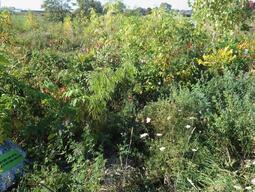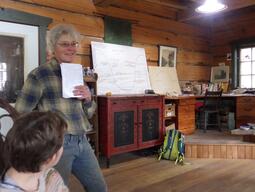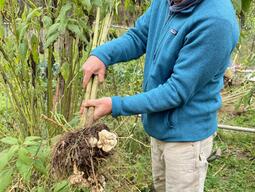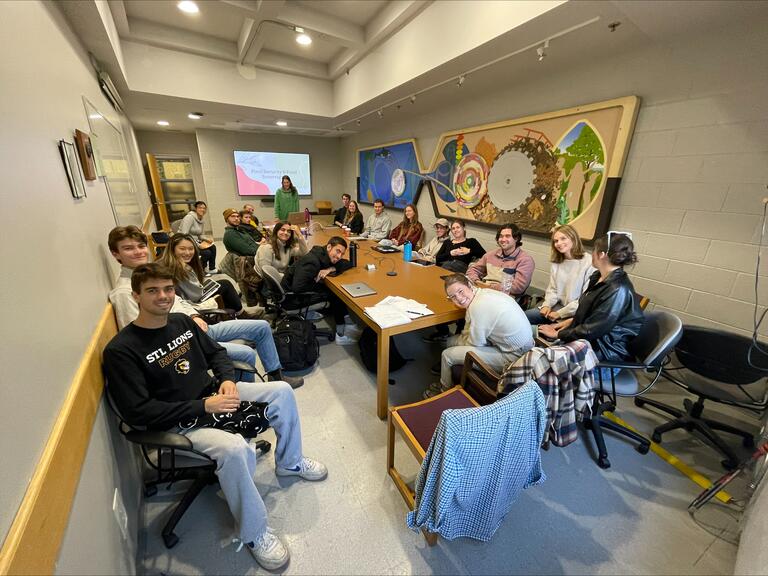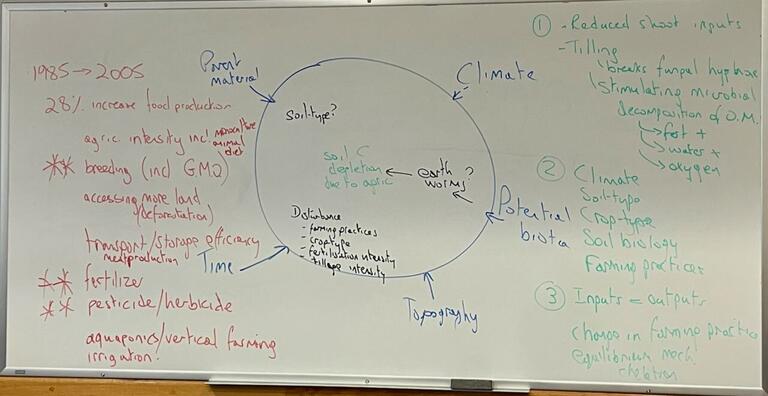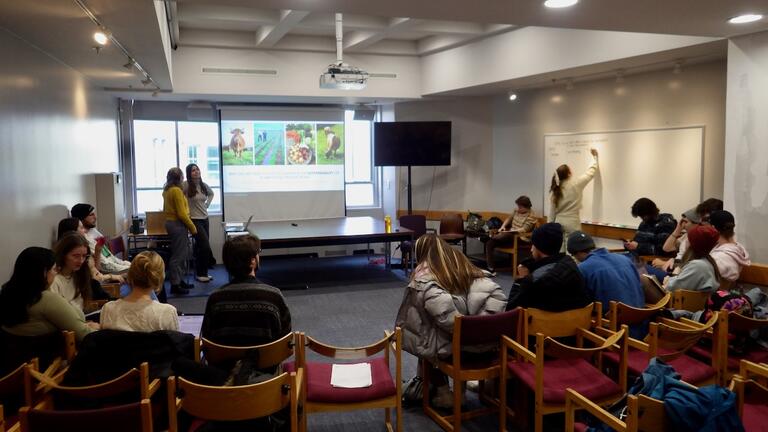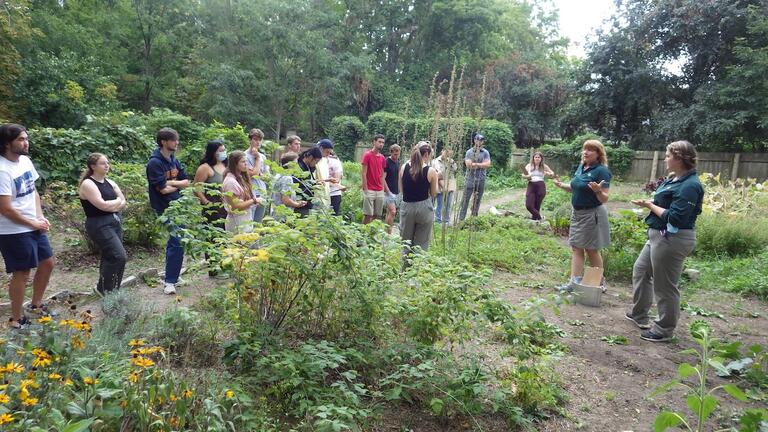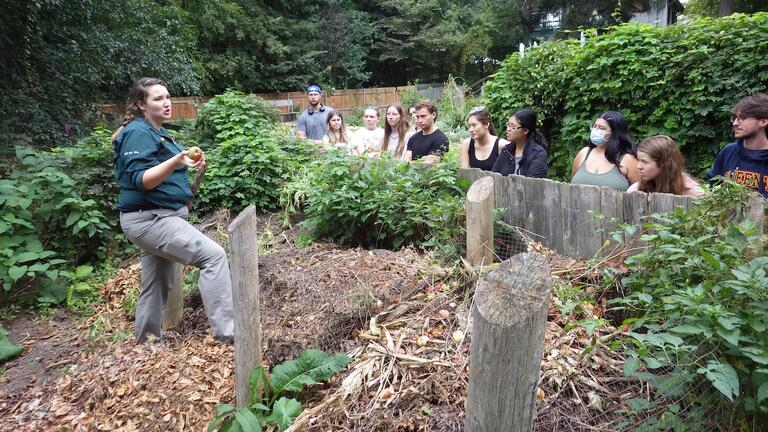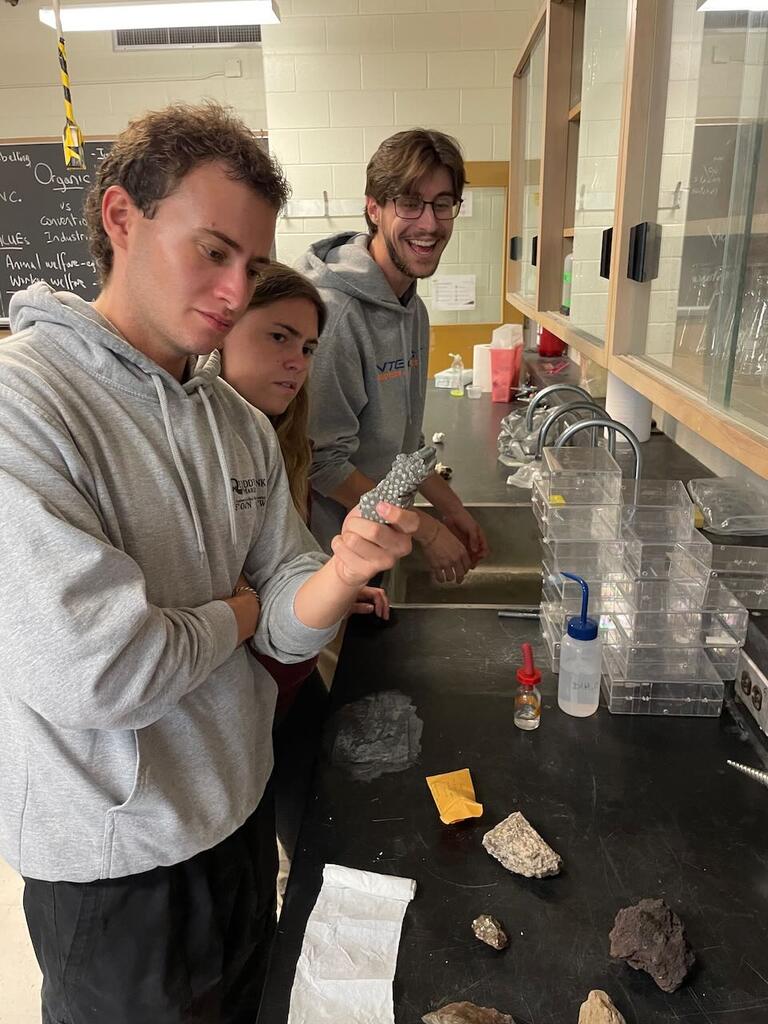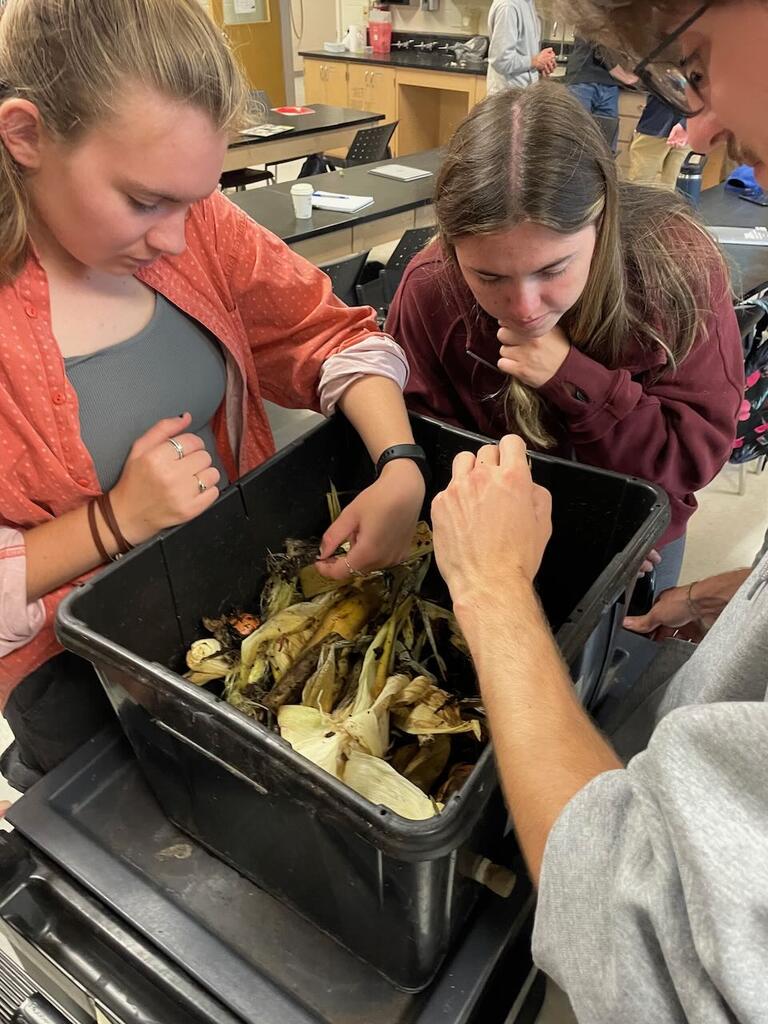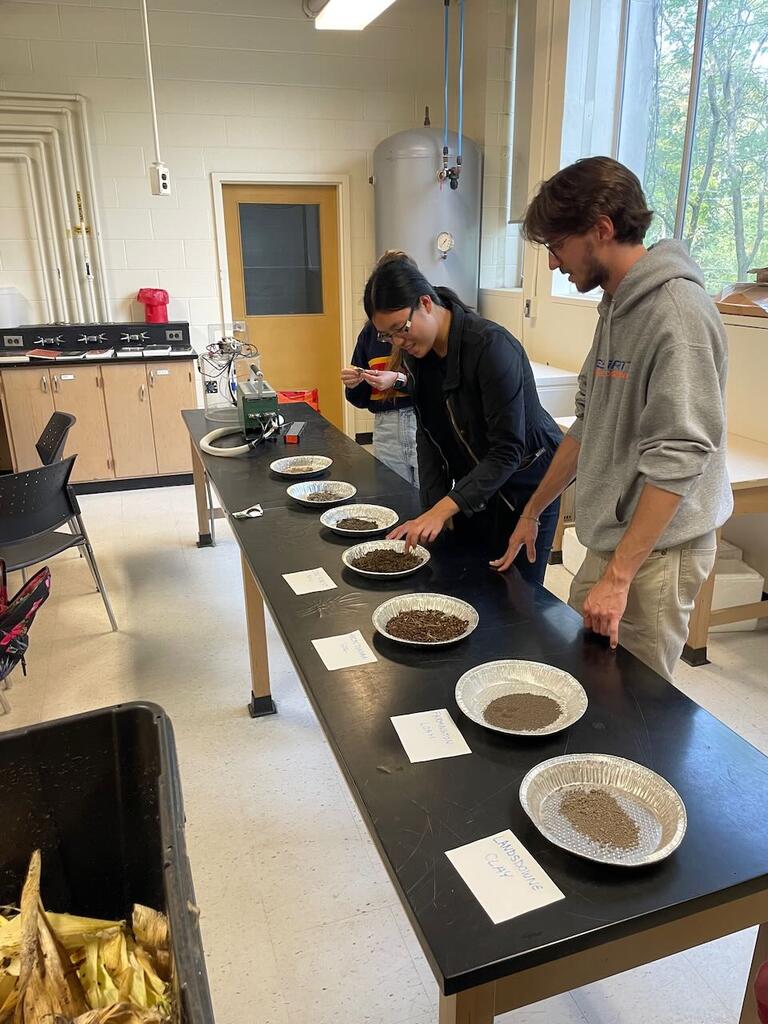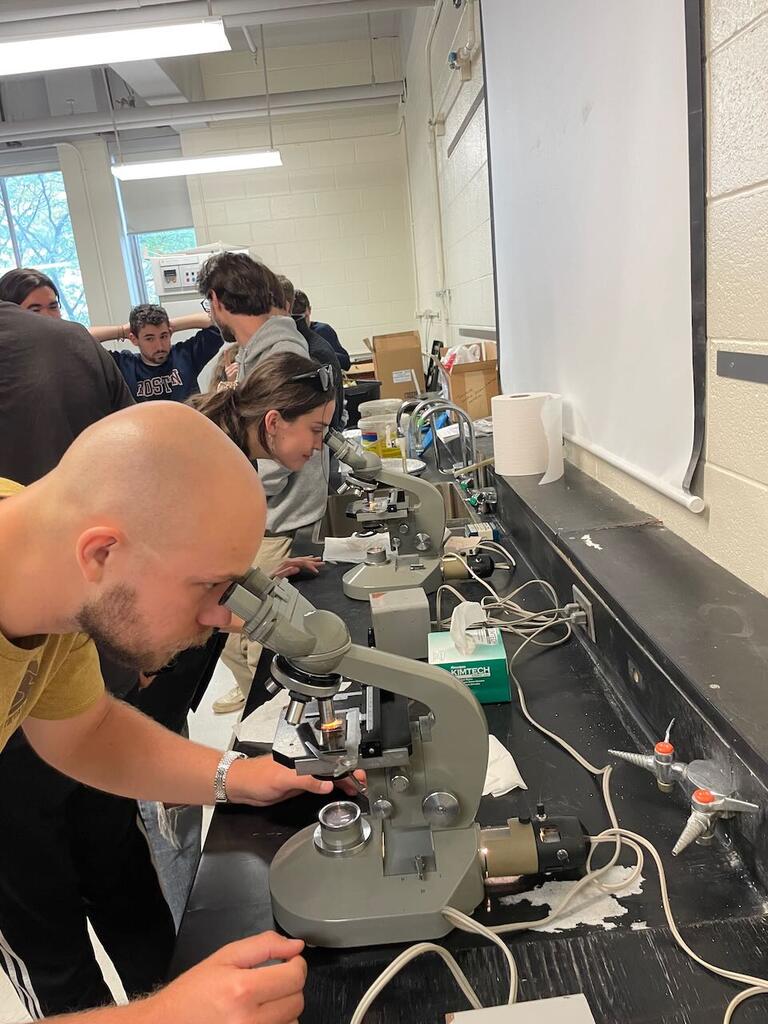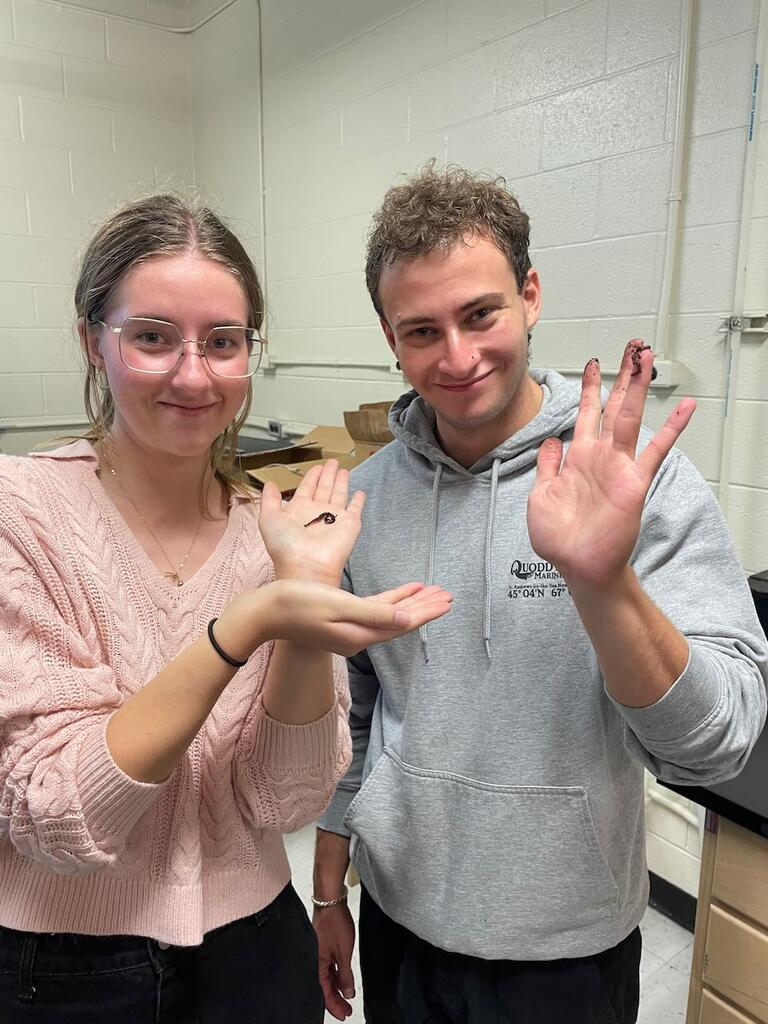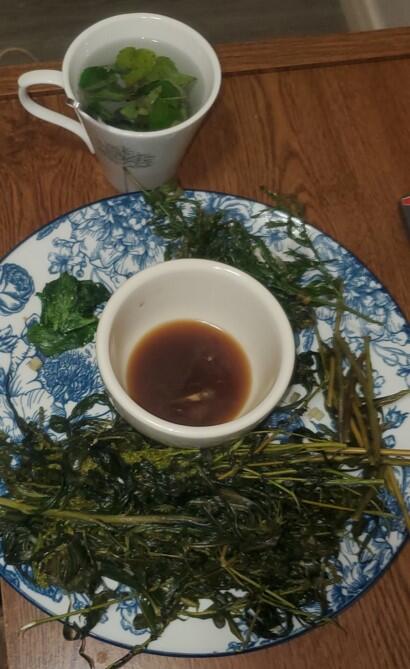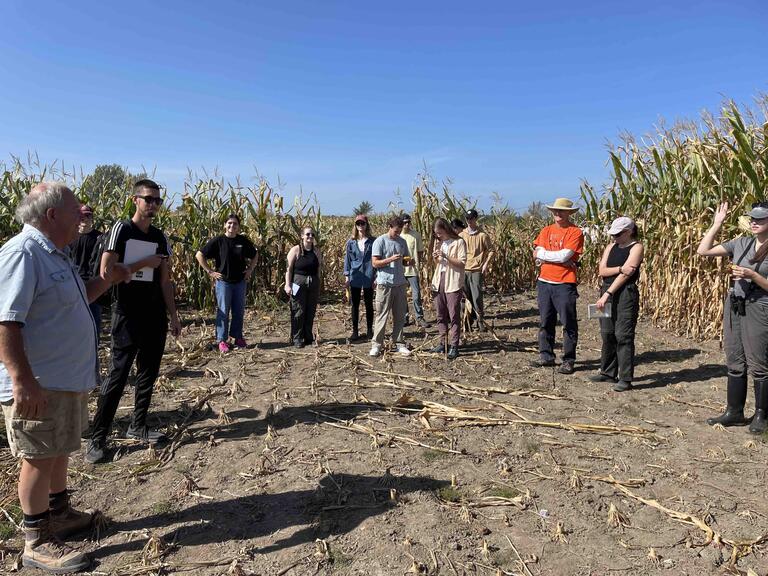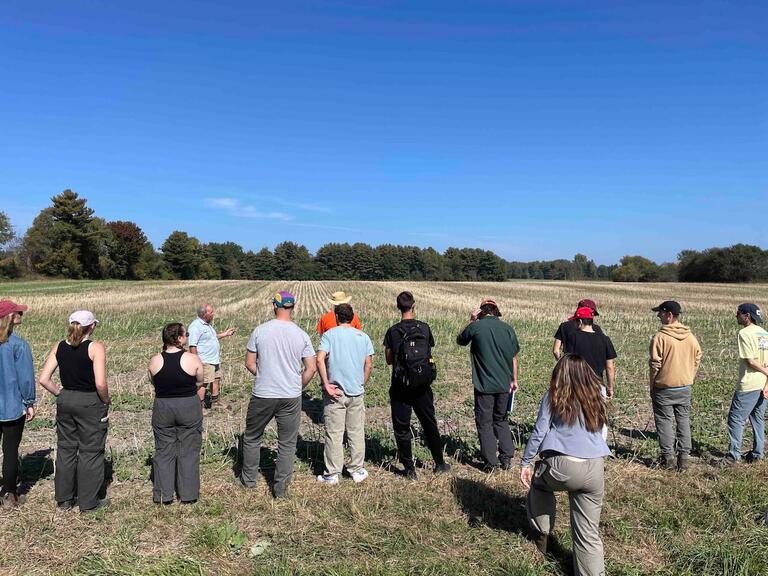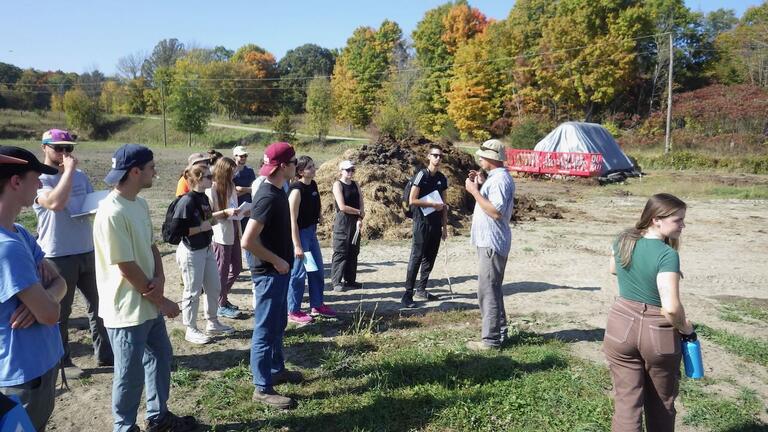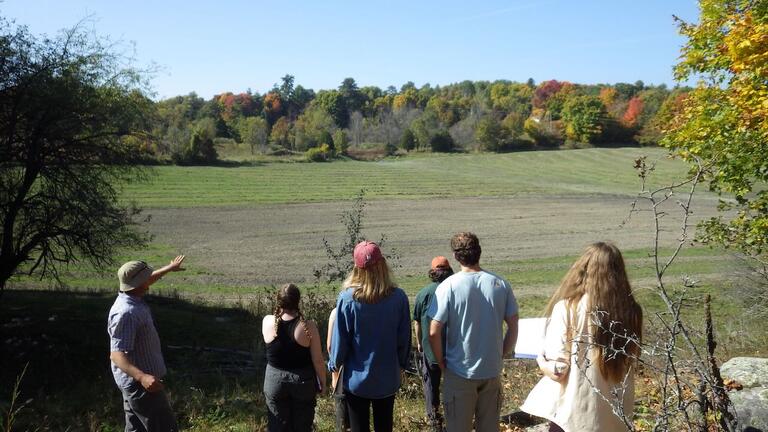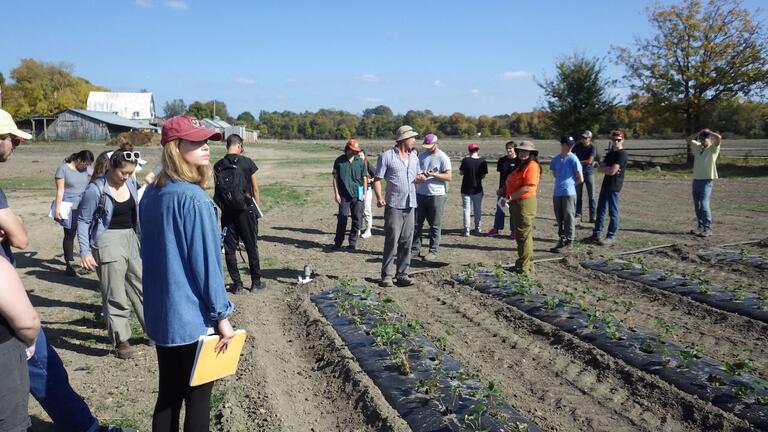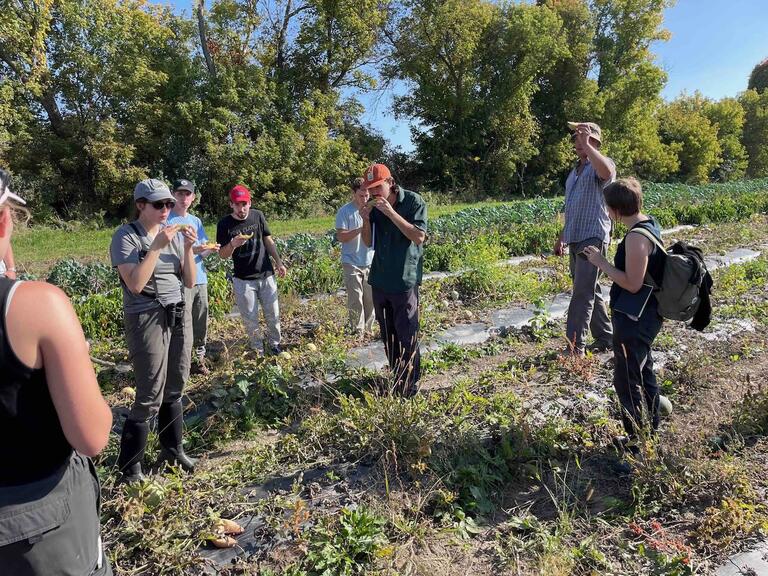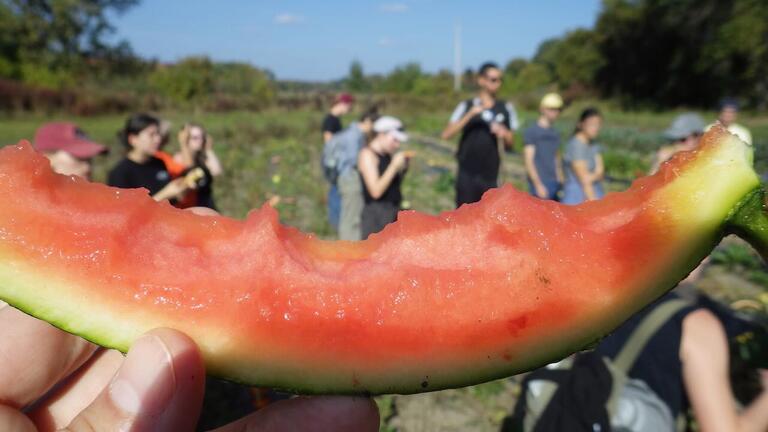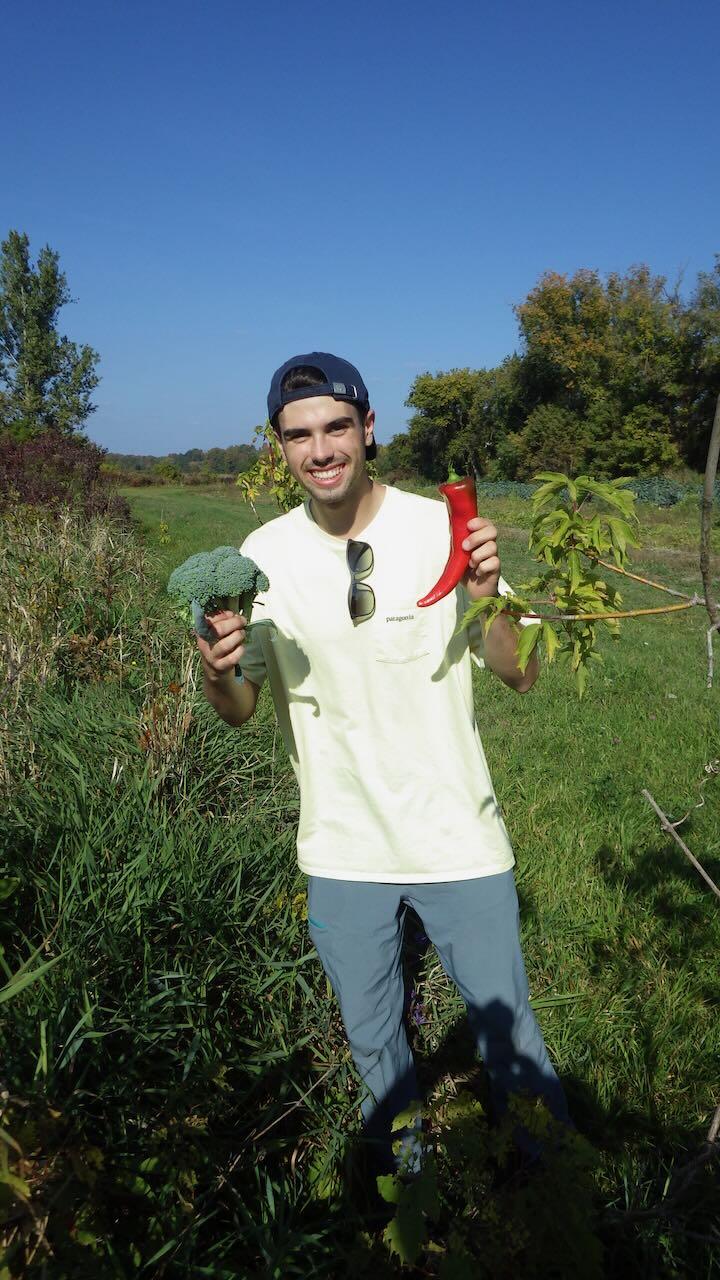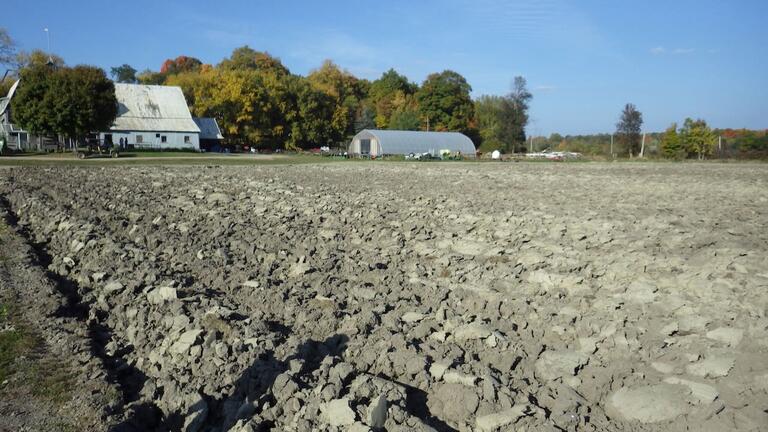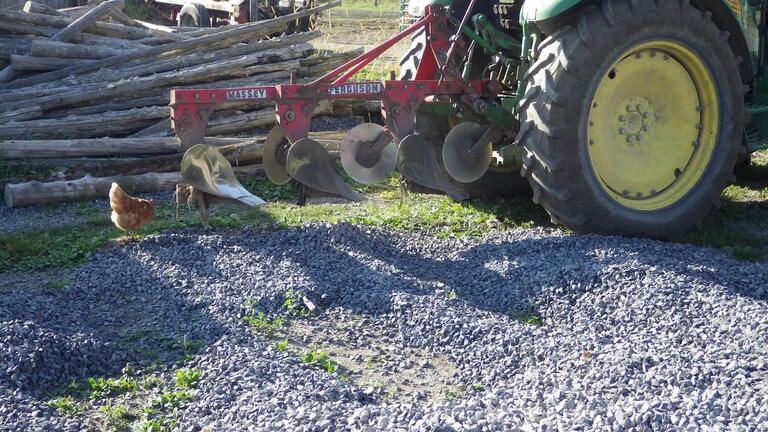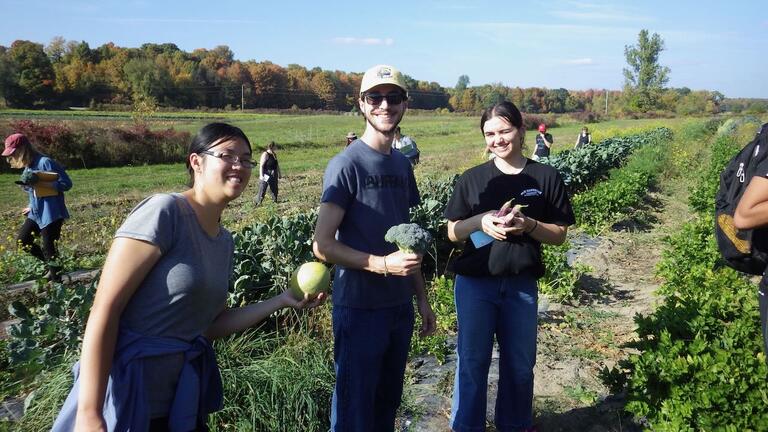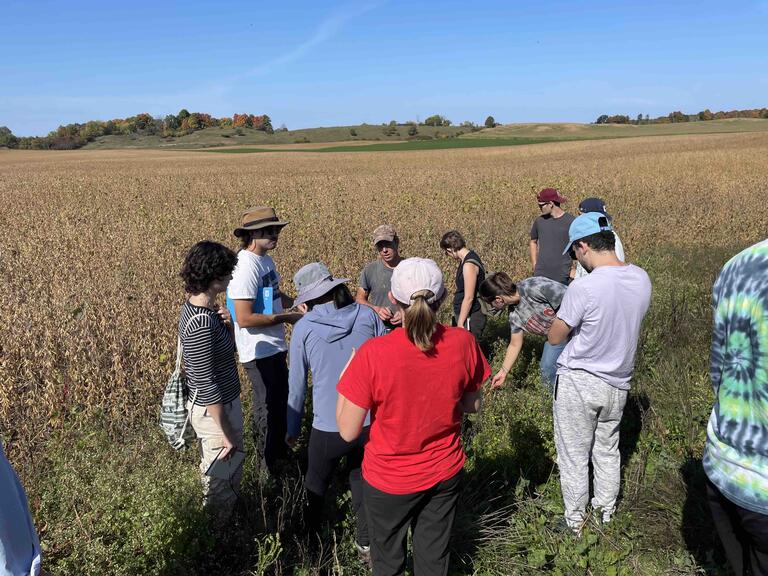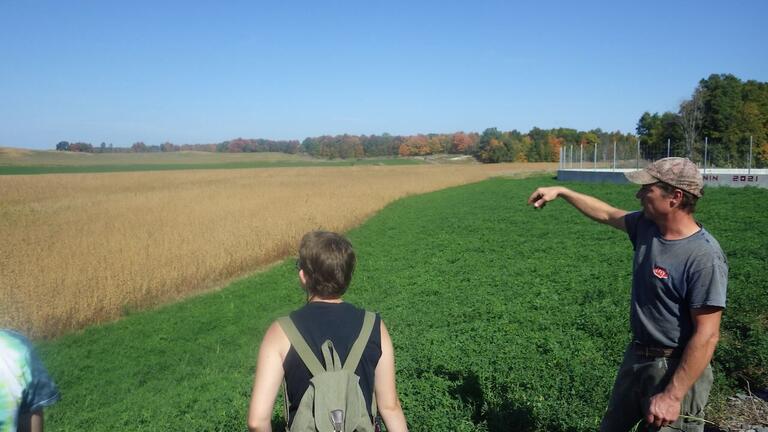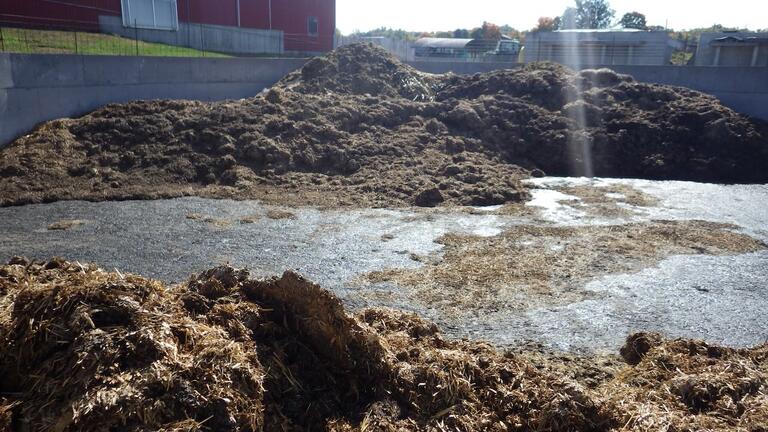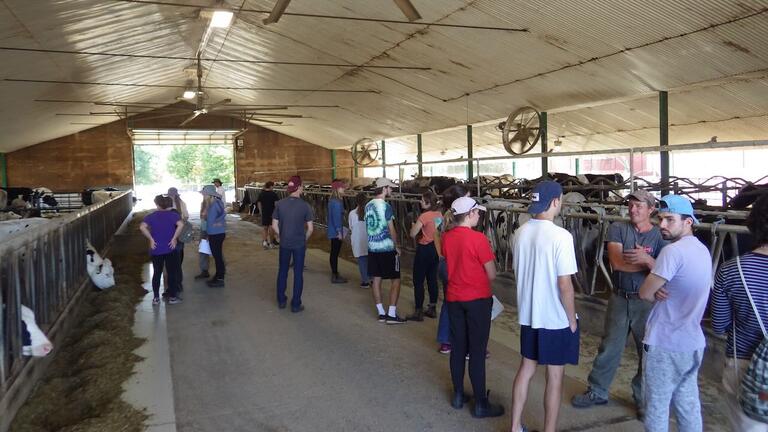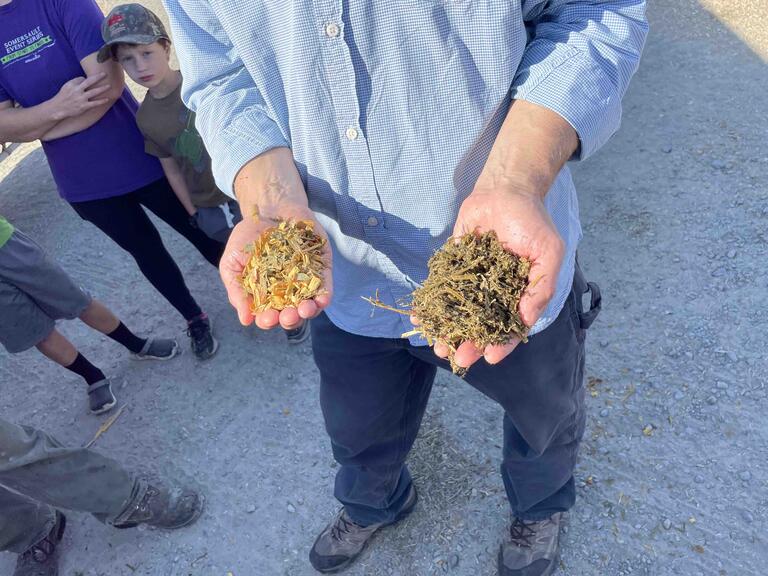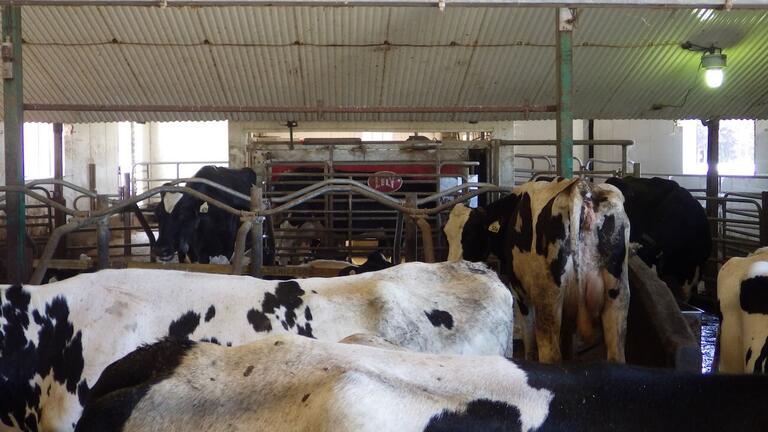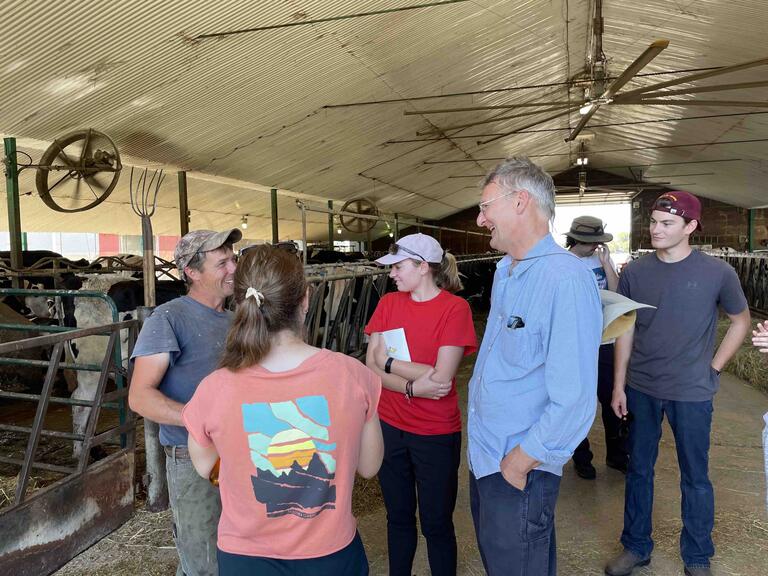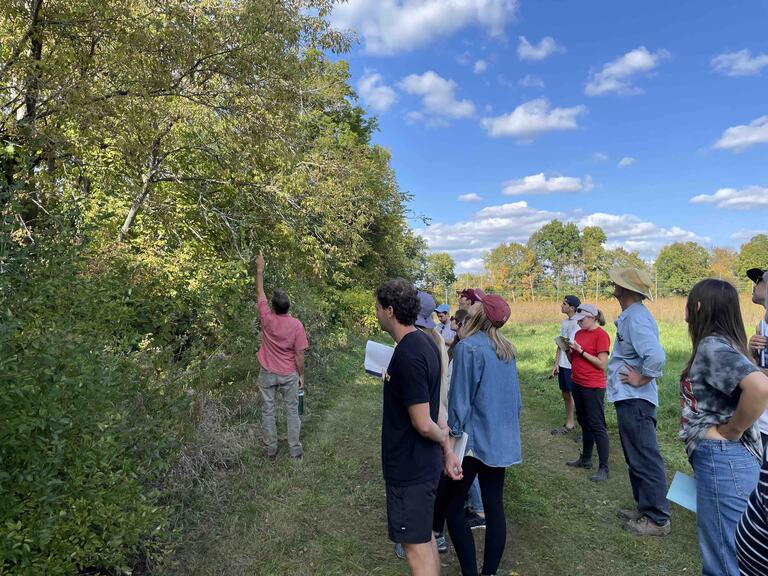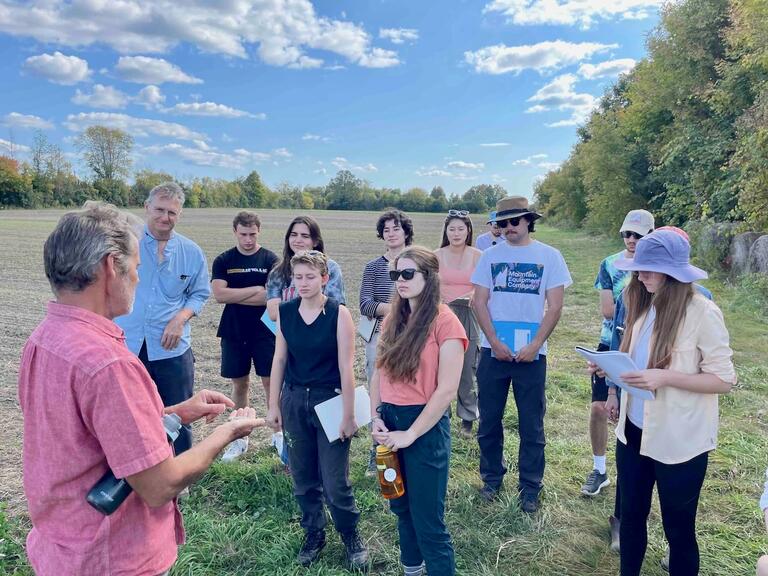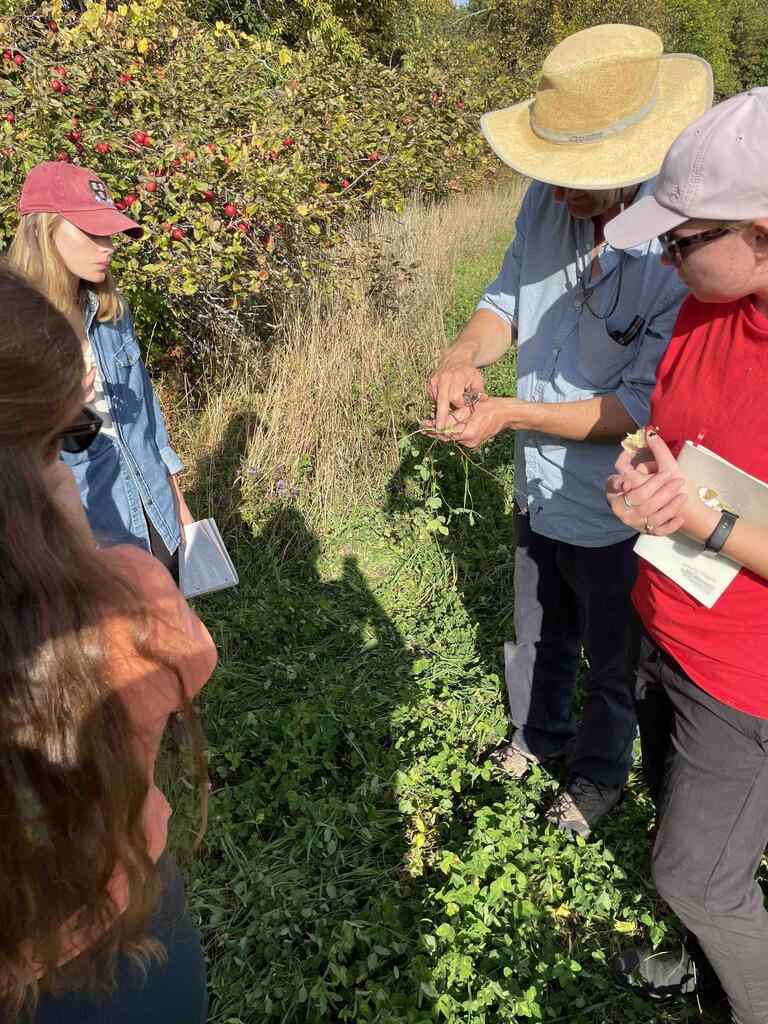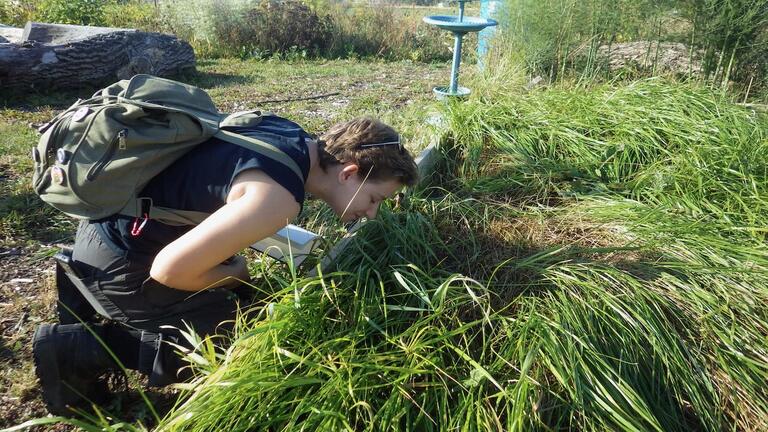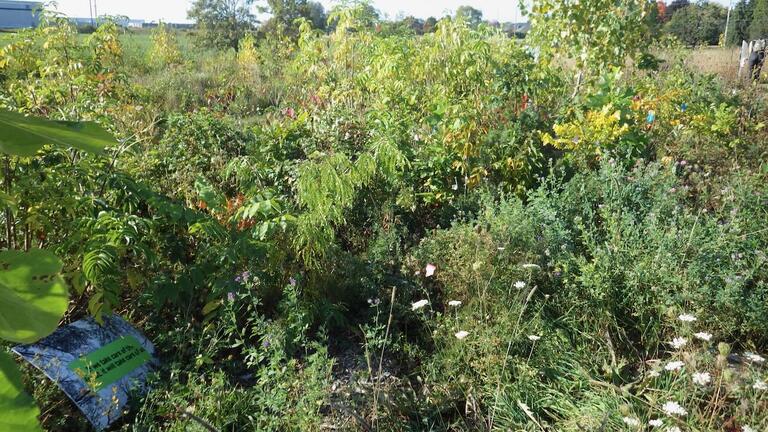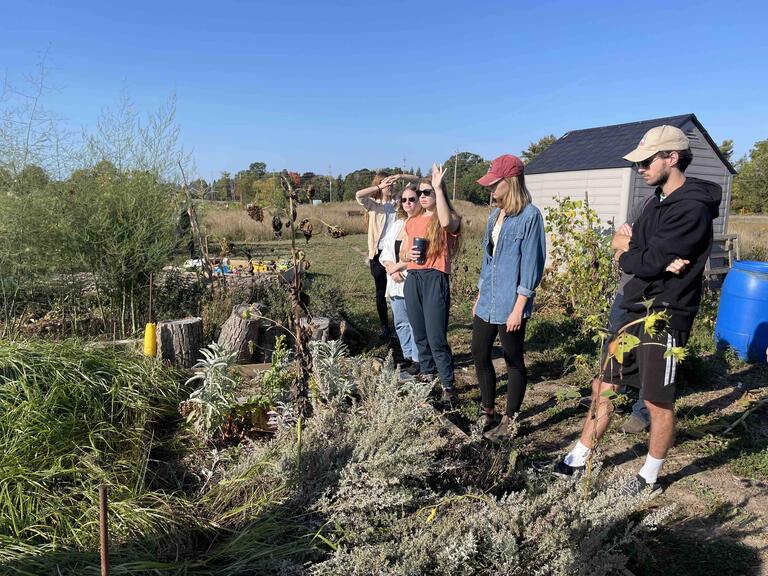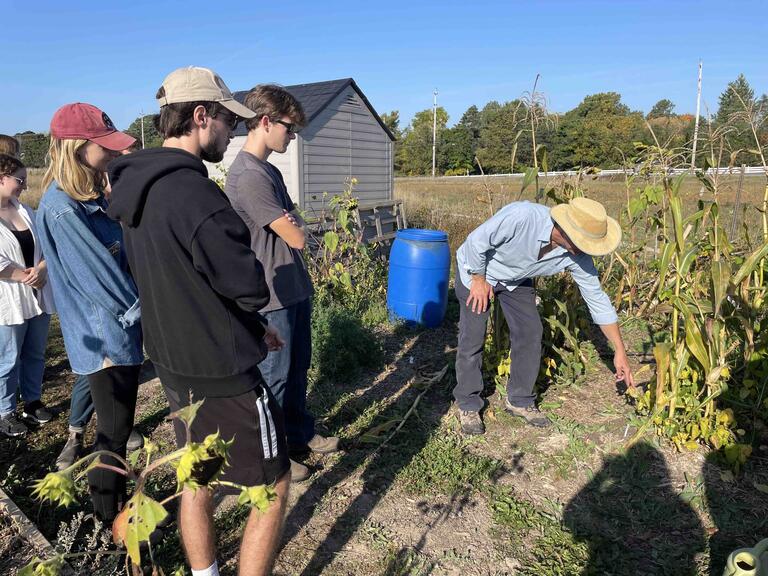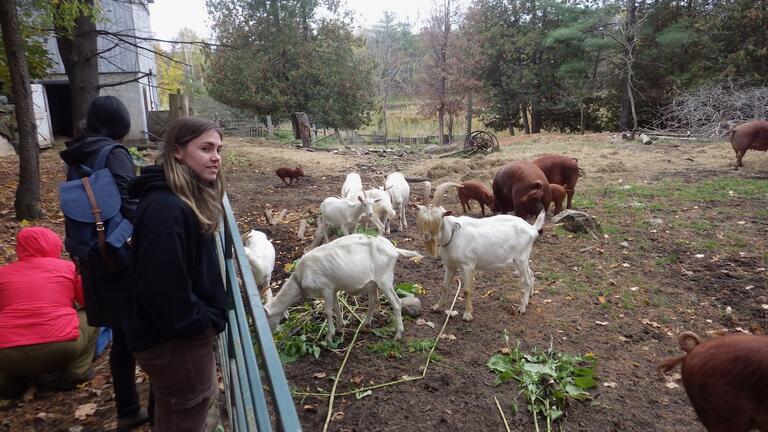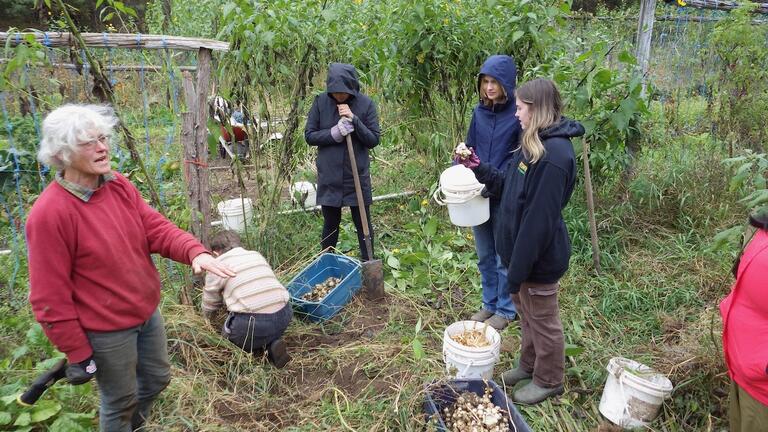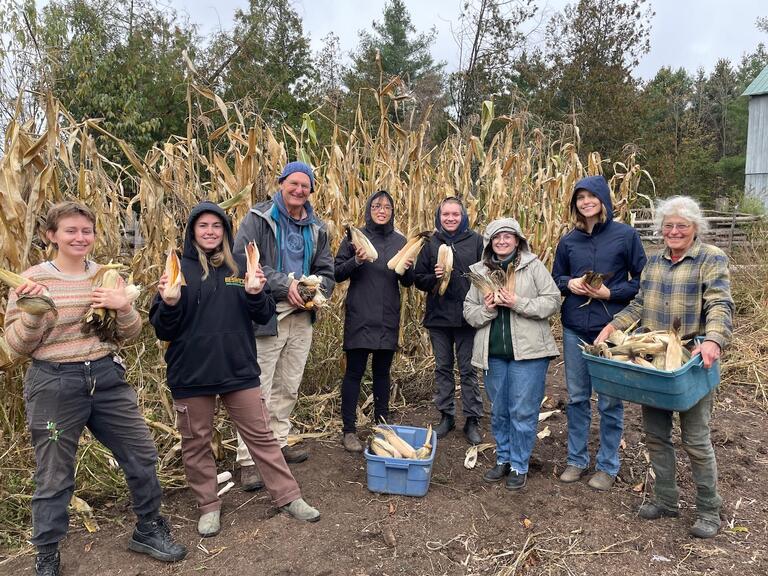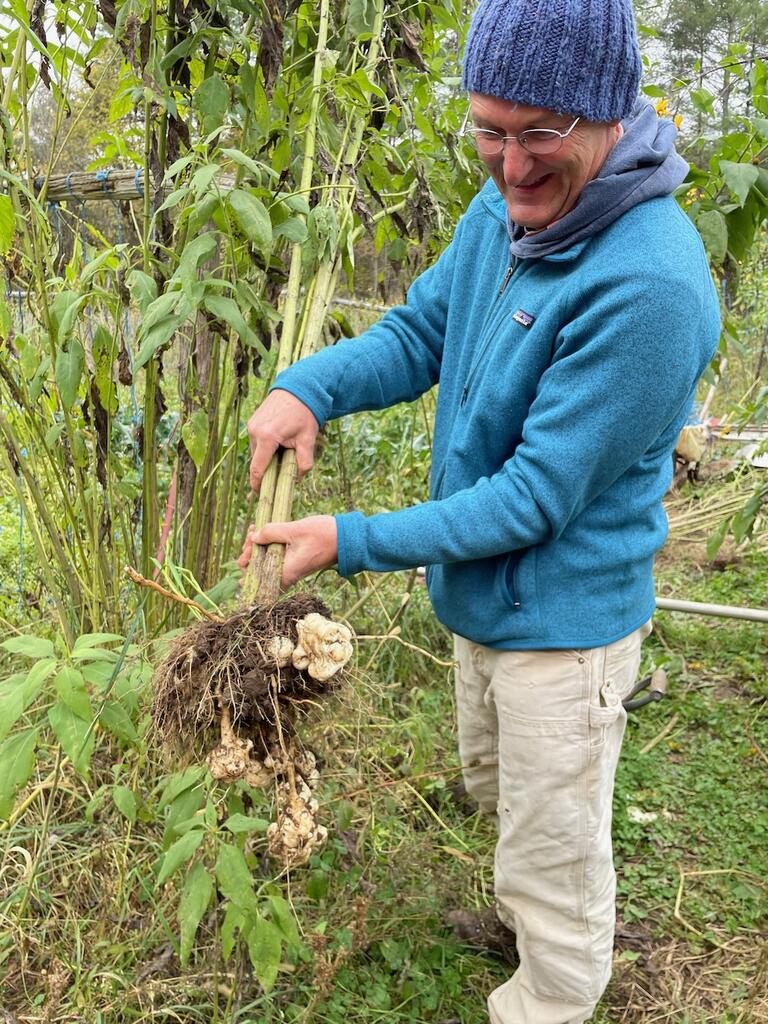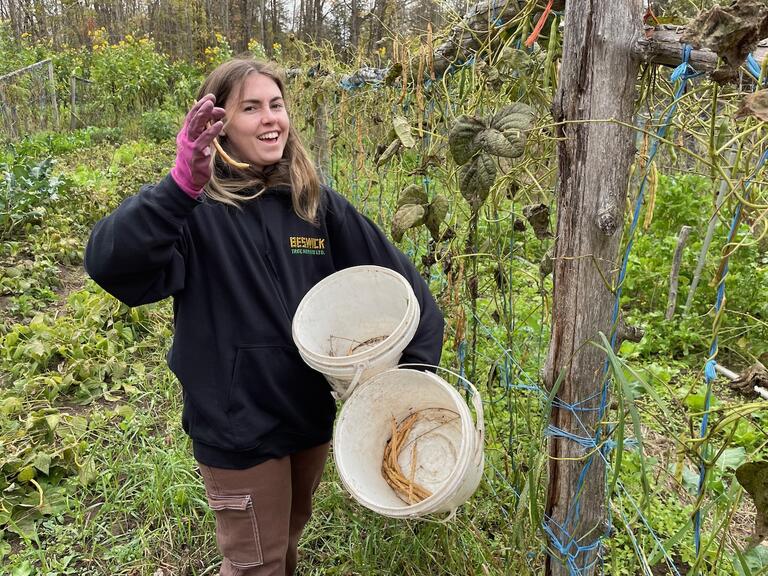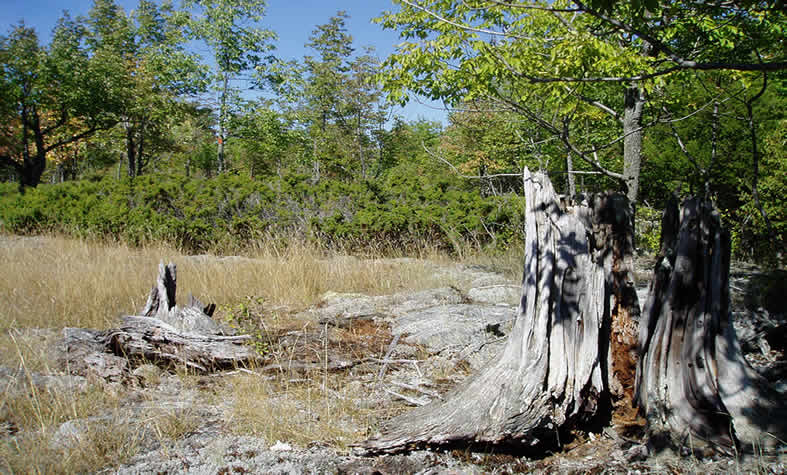
Welcome to the Biol 416 web page for Fall 2023
The ecosystem approach to ecology treats organisms and the physical aspects of their environment as components of a single integrated system. Terrestrial ecosystem functioning is governed by interactions amongst animals, plants, and soil organisms, as well as exchanges of energy and resources with the atmosphere, soils, rocks, and aquatic environments. This advanced undergraduate level ecology course is focused on plant-soil interactions as being a fundamental determinant of the structure and functioning of terrestrial ecosystems around the world. As a group, we will attempt to synthesize recent advances arising from the ecosystem approach with established ecological theory to describe and explain ecosystem-level patterns and processes in the terrestrial environment.
The course content for the Fall 2023 iteration will be centered on identifying, critiquing, and applying terrestrial ecosystem ecological concepts to address the following thematic question: What are likely to be the most effective agroecosystem management practices to meet future global food demands in terms of not just quantity but also quality?
Learning outcomes
By the end of this course, the student should be able to:
- Explain and evaluate the major concepts underlying terrestrial ecosystem ecology that distinguish it from lower hierarchical levels such as community and population ecology
- Describe and contrast the major processes and features that distinguish local terrestrial ecosystems including farm-types, especially in the context of how soil-plant relationships influence farmers’ crop choices and agricultural practice
- Formulate clear, original, challenging, and concise thematic questions from study reading material that are likely to lead to focussed and intellectually probing seminar group discussions, student-led seminar topics, and short essay/media presentations
- Explain the concept of food insecurity as it applies at both local (Kingston) and global scales
- Synthesize, evaluate, and critique the potential solutions to meeting future local and global food quantity and quality demands
- Present a stimulating, informative and creative seminar on a fundamental issue connecting agroecosystem ecology and global food supply/demand
- Develop an original, cohesive, synthesis essay/media presentation on the distinctive concepts of ecosystem-level ecology that would be most useful in developing and expanding sustainable farming practices
Professor: Paul Grogan
Lecture/seminar times: Mondays 13.00-14.30; Wednesdays 11.30-13.00 (seminar room #3110, Biosciences building)
Lab/field trip times: Tuesdays: 14.30-17.30 (lab room #3326, Biosciences building); OR Room #3312 (see schedule below)
Lab Instructor: Kira Henders (E-mail: 18kjsh@queensu.ca; Office: Room 2507)
Assessment:
15% Participation in seminar discussions
20% Seminar questions
25% Seminar
15% Participation in lab exercises and and group discussion during field courses
25% Final synthesis essay/media presentation
Required textbook: Principles of Terrestrial Ecosystem Ecology. 2011. 2nd edition. Chapin, F.S. III, Matson, P.A. and Vitousek, P. Springer.
Initial schedule (to be updated throughout the course): Lecture/Seminar sessions are 80 minutes; Labs generally 80 minutes too, and often only on alternate weeks.
|
Week beginning |
Day and time |
Convenor |
Topic |
Reading |
|
5 September |
Tuesday, 14.30 - LAB |
|
No lab |
|
|
|
Wednesday 11.30 |
|
No class |
|
|
11 September |
Monday 13.00 |
Paul |
Introduction to the course |
Pollan, M. A reading from The Omnivore’s Dilemma |
|
|
Tuesday, 14.30 (seminar in room 3112) |
Kira |
Species effects on Ecosystem Properties – The Bracken tract field expt. |
|
|
|
Wednesday 11.30 |
Paul |
The Ecosystem Concept
|
Chapin et al, Chapter 1: 3-12,17-22. |
|
18 September |
Monday 13.00 |
Paul |
Field trip to Bellevue house farm gardens |
|
|
|
Tuesday, 14.30 (seminar in room 3112) |
Paul |
Major ecosystem ecology concepts |
Chapter 1: 13-17; Chapter 2: 23-26, 38-41, 50-61. |
|
|
Wednesday 11.30 |
Paul |
State factors to explain Soil development, and Ecosystem structure/function |
Chapter 3: 63-69. |
|
25 September |
Monday 13.00 |
Paul |
Anthropogenic impacts on soils |
Foote and Grogan, 2010. Ecosystems 13: 795-812. |
|
|
Tuesday, 14.30 – LAB in room 3326 |
Kira/Paul |
Outdoor and vermiculture composting and associated soil biology; Food Inc. documentary discussion |
|
|
|
Wednesday 11.30 |
Paul |
Soil-types, and internal transformations |
Chapter 3: 73-78, 82-85. |
|
Saturday/ Sunday 30 Sept - Oct 1st |
Two-day weekend field trip |
Paul/Kira |
Field trips to a diverse variety of local conventional and organic farms |
|
|
2 October |
Monday 13.00 |
|
No class - National Day of Truth and Reconciliation observed |
|
|
|
Tuesday, 14.30 - LAB in room 3326 |
Kira |
Corn – A multi-faceted investigation!
|
|
|
|
Wednesday 11.30 |
Paul |
Soil Physical and Chemical Properties |
Ch. 3: 86-89; Ch. 7: 202-203; Ch. 9: 287-290; 293-295. |
|
9 October |
Thanksgiving and Fall mid-term break |
No classes |
|
|
|
Sunday 15 October |
Optional one-day field trip |
Paul/Kira |
Field trip to a biodynamic farm |
|
|
16 October |
Monday 13.00 |
Paul |
The Biology of Soils (I) |
Chapter 7: 183-190; 243-244; |
|
|
Tuesday, 14.30 (seminar in room 3112) |
Paul |
No class |
|
|
|
Wednesday 11.30 |
Paul |
The Terrestrial Ecosystem Nitrogen cycle |
Chapter 9: 271-280 (overview) |
|
23 October |
Monday 13.00 |
Paul |
The Biology of Soils II,and Species effects on Ecosystem Processes |
Chapter 7: 188-190 (review); Chapter 11: 321-324; 330-335. |
|
|
Tuesday, 14.30 (seminar in room 3112) |
Michelle Kehoe, Program Director of Loving Spoonful |
Food sovereignty as a means to combat local food insecurity |
|
|
|
Wednesday 11.30 |
|
Ecosystem carbon cycling, Decomposition, and Plant-Soil interactions |
Chapter 7: 190-202; 203-204; Chapter 8: 229-233, 238-241, 253-257. |
|
30 October |
Monday 13.00 |
Jessica Puistonen and Amanda Leonardis |
Does climate change present feasible opportunities for agriculture in northern Canada?
|
Zebarth et al, 1997. Effect of climate change on agriculture in British Columbia and Yukon. Chapter 15. In:Responding to global climate change in British Columbia and Yukon: Climate impacts and adaptation (Edited by Eric Taylor and Bill Taylor).
|
|
|
Tuesday, 14.30 - LAB |
|
No class |
|
|
|
Wednesday 11.30 |
Lauren Alward, Mathieu Chatelain, and Candace Ma |
Could polycultures make industrial agriculture significantly more sustainable, and if so, how can they be implemented?
|
Li et al., 2007. Diversity enhances agricultural productivity via rhizosphere phosphorus facilitation on phosphorus-deficient soils. PNAS 104(27): 11192–11196 |
|
6 November |
Monday 13.00 |
Mikaela Naumann, Chris Lewis and Jacob Johnson |
How will the impact of climate change on soil affect different kinds of agriculture, and how will this impact global food production?
|
Singh, B. et al. 2010. Microorganisms and climate change: terrestrial feedbacks and mitigation options. Nature Microbiology 8: 779-790
|
|
|
Tuesday, 14.30 - LAB |
|
No class |
|
|
|
Wednesday 11.30 |
Marlow Benson, Andjelija Prekic, and Erika Gagnon |
Why do we need cattle to enhance the sustainability of plant food production?
|
Teague, W. et al. 2011. Grazing management impacts on vegetation, soil biota and soil chemical, physical and hydrological properties in tall grass prairie. Agriculture, Ecosystems, and Environment 141:310-322.
|
|
13 November |
Monday 13.00 |
Molly Gautreau, Justin Gross, and Lizzy Li |
How well do current organic farming practices and regulations align with their intended goals; is there a need for modification?
|
Beach, H. et al. 2018. The Current State and Future Directions of Organic No-Till Farming with Cover Crops in Canada, with Case Study Support. Sustainability 10(373):1-15.
|
|
|
Tuesday, 14.30 - LAB |
|
No class |
|
|
|
Wednesday 11.30 |
Jonathon Praw, Cam Puro, and Matthew Hudson |
Potential impacts of the ongoing declines in pollinators on the agricultural industry and global food supply: How concerned should we be?
|
Potts, S. et al. 2016. Safeguarding pollinators and their values to human well-being. Nature 540:220-229. |
|
20 November |
Monday 13.00 |
Charles Pinecone, Nathan Preston, and Dylan Lansing |
Should we increase our focus on natural crop variability and traditional varieties to foster more sustainable and resilient agro-ecosystems?
|
Hellin, J. et al. 2014. Maize Landraces and Adaptation to Climate Change in Mexico. Journal of Crop Improvement 28:484-501 |
|
|
Tuesday, 14.30 - LAB |
|
No class |
|
|
|
Wednesday 11.30 |
Paul/Kira |
Essay brainstorming and preparation session |
|
|
27 November |
Monday 13.00 |
|
No class |
|
|
|
Tuesday, 14.30 - LAB |
|
No class |
|
|
|
Wednesday 11.30 |
|
No class |
|
|
4 December |
Monday 13.00 |
Paul |
Sustaining socio-ecological systems |
Chapin et al, Chapter 15, 423-446. |
|
5 December |
Tuesday, 14.30 (seminar in room 3112) |
Paul |
Synthesis |
|
_0.jpeg)

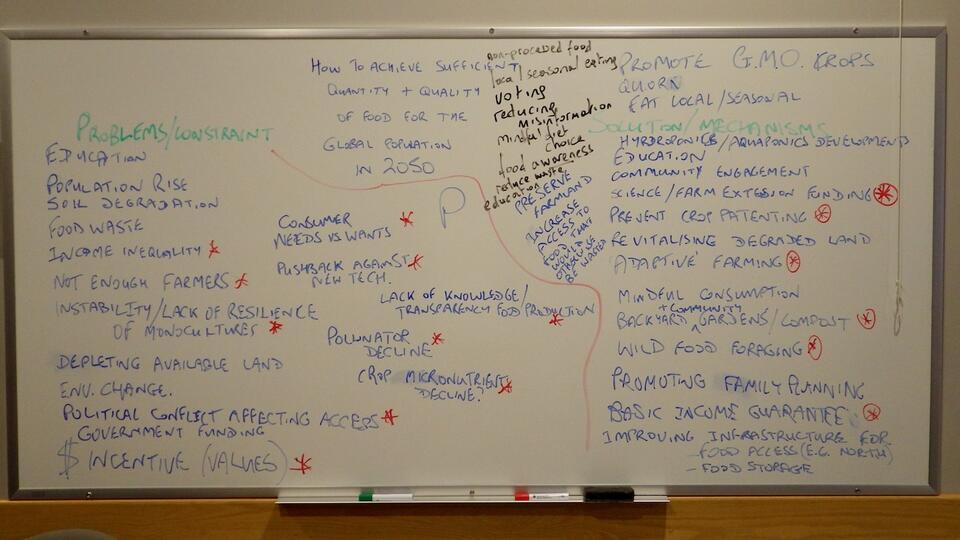
To see materials from previous iterations of this course, use the drop-down menu under the 'Teaching' tab at the top of this page
Last update: 2 January 2024
Resources
Some classroom photos




Field trip to Bellevue House farm gardens


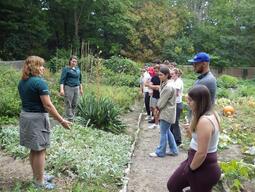
Lab practical exercises
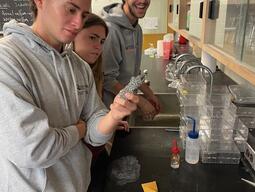


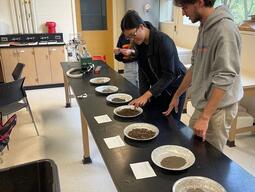
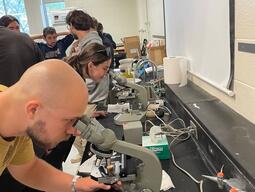



Field visits to the Forman and Salt of the Earth farms
Charlie Forman: “As a species, most of our behaviours are driven by greed"
"Positive knock-on international effects - the Mexican worker who goes back with 30K can buy 18 head of cattle in his local environment"
"It’s all about money – everything we do has to pay for itself for us to keep viable."
"Global food production and sustainability – people say we are going to hell in a bucket, but it is really not the case.”
Charles Summers: "There's been a big switch in this region since the late 1990’s to corn and soya bean for meat production, soya to export to Chinese market, and chemistry – biofuel/oil production.
“Corn and soyabean – We’ve built our current civilisation’s food system around these two crops!”
"Livestock – cattle – are the fundamental core of civilisation – the nurse mother of humankind”
“The market instead of best practice is really defining land use now”
“Plough – maintains grassland – otherwise herbicide is needed eventually because weed species that are avoided by grazers become dominant.”
"Maybe the future of farming is further increases in the use of chemicals and GPS precision application to produce soyabean etc that will be fermented into a nutritionally balanced all-round ‘kibble’?"

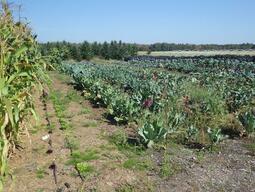


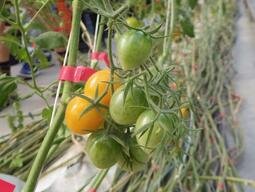






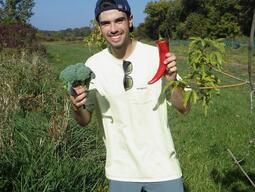
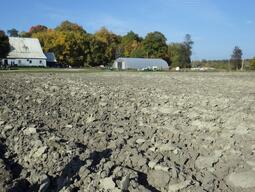

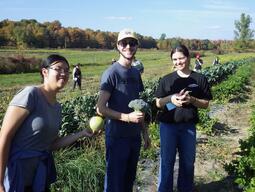

Field visits to Donaldson dairy/grain farm, and Ironwood Organics farm
Bob Donaldson: "We feed our cattle 'rocket fuel'; we're constantly looking for ways to get more milk per cow”
"Milk production (70L per cow per day) has increased x4 over the past 20 years - primarily due to high tech inputs (nutrition science info, computer robotics...)"
“My job to create a sustainable business that my children can take over some day. It’s a passion, a labour of love.”
Chris Wooding: "Diversity->Stability->Resilience->Sustainability"
"Land – an acre – is a 2 dimensional quantity on which a thin layer is harvested, but land function planning is about a 3 dimensional system... trees, ecotones, snow accumulation, soil depth (roots to >6 feet), gas exchange with atmosphere....
“You are made of soil”








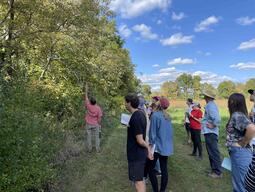



Field visits to Indigenous Food Sovereignty Garden (Kingston Highway 15), and to Ravensfield biodynamic farm
Titia Posthuma: “The land is there to be loved”
“Looking after the soil looks after the plants”
"Maximising the natural biological interactions maximizes resilience – compare with industrial agriculture which specifically aims to minimise interactions and use chemicals to control pest outbreaks and provide fertility."
"Ruminants – cows, deer, goats, sheep... have 4 microbial nurseries! Critical for sustainable farming – not for meat – but as ‘workers’ (- ‘organic matter transformation systems’)."
Weeds and pests (e.g. quack grass Elymus repens): "It's not about getting rid of it, but rather asking how can we use what they're doing in a beneficial way."
"Wood chip additions enhance soil organic matter over the long term – understanding that the natural ecosystem across most of this region is forest is critically and fundamentally important to appropriate current land management."


